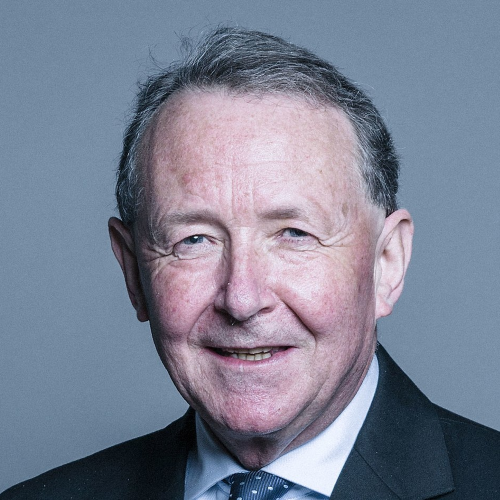This article was first published on www.forbes.com here.
Ewelina U. Ochab, Co-founder of the Coalition for Genocide Response
As British Parliament concludes one of its shortest sessions in the history (the sessions began on October 14), and Parliamentarians prepare to run for office again, many important issues are pushed aside for the only topic that matters at the moment – Brexit. However, there are some exceptions to this concerning trend.
On November 4, 2019, a few British Parliamentarians and experts have launched a new venture to address the issue of genocide. The Coalition for Genocide Response is a new initiative that aims to unite politicians, scholars, and civil society representatives in the common aim to provide a comprehensive response to genocide. The Coalition for Genocide Response wants to unite all to ensure that the promise of Never Again has meaning at last.

During the launch, several speakers expressed their support for the initiative and its urgent need in light of the state’s failures to prevent and punish the crime of genocide, both in the U.K. and globally. Among others, Sir Geoffrey Nice QC, a renowned British barrister, discussed the inadequacies of the current international system in its prevention, suppression and punishment of mass atrocities. He further commended the latest legislative attempt to address the issue of genocide, the Genocide Determination Bill, a bill tabled by Lord Alton of Liverpool, a peer at the House of Lord. While the bill cannot proceed until the new session of Parliament begins, the event provided an opportunity to discuss it and consider how best to support it in the future. Today In: Business
Both initiatives, the Coalition for Genocide Response and the Genocide Determination Bill are a breath of fresh air for the subject of genocide response and may be the catalyst to trigger renewed action.
As recent years have been dominated by shocking violence and bloodshed, the concept of preventing international crimes like genocide (or crimes against humanity and war crimes) seems to have been lost and forgotten. In the last five years alone, we have seen two clear cases of genocide; one perpetrated by Daesh against religious minorities in Iraq and Syria, the second perpetrated by the Burmese military against the Rohingya Muslims in Myanmar. In both cases, the U.K., and other states, have done little to prevent the crime and punish the perpetrators. Apart from these two high profile cases, there are several other situations around the world where red-flags are identifiable. Places where the atrocities may escalate and pose a threat of genocide.
The U.K. has, to say at least, an inadequate record on responding to mass atrocities. This, despite its powerful position as a permanent member of the U.N. Security Council and as champion of some important initiatives on responding to atrocities (to include pioneering initiatives to establish mechanisms to collect evidence of mass atrocities perpetrated by Daesh in Iraq, namely, the Investigative Team established by the U.N. Security Council resolution 2379). Nonetheless, as the U.K. has been very selective in its response to international crimes, it has been criticized for aligning its response to such atrocities with its own interests. Some recent examples of its failure to address such atrocities include its response to the situation in Syria, Yemen or Myanmar.
Other states, including the U.S., have introduced much more effective strategies to address genocide. For example, in 2011, President Obama issued Presidential Study Directive 10 and approved several steps to strengthen the ability to predict, prevent and address mass atrocities, including genocide. Presidential Study Directive 10 was followed by the establishment of the Atrocities Prevention Board, a mechanism engaged with monitoring and response to potential atrocity risks. The U.S. continues this work and is preparing a global conference on the topic in 2020.
There are lessons to be learned from the failures of states and international communities to prevent international crimes. Prevention of genocide, crimes against humanity and war crimes should lie at the heart of the foreign policy of every state. This is the only way to effectively protect people from the destructive force that such atrocities carry. Responding to genocide and other international crimes once they occur cannot achieve much as the ultimate damage is already done and people have paid the ultimate price. In the words of a late British Parliamentarian Jo Cox: “We must now ensure that Governments the world over deliver on their promises on preventing genocide and other crimes against humanity. Never again can we let innocents suffer as they did in the Holocaust. Never again.”
Responding to such atrocities, while it can provide some assistance to those affected, will not bring back lives that have been lost or heal the injuries. Prevention is the only way. Follow me on Twitter or LinkedIn. Check out my website.


